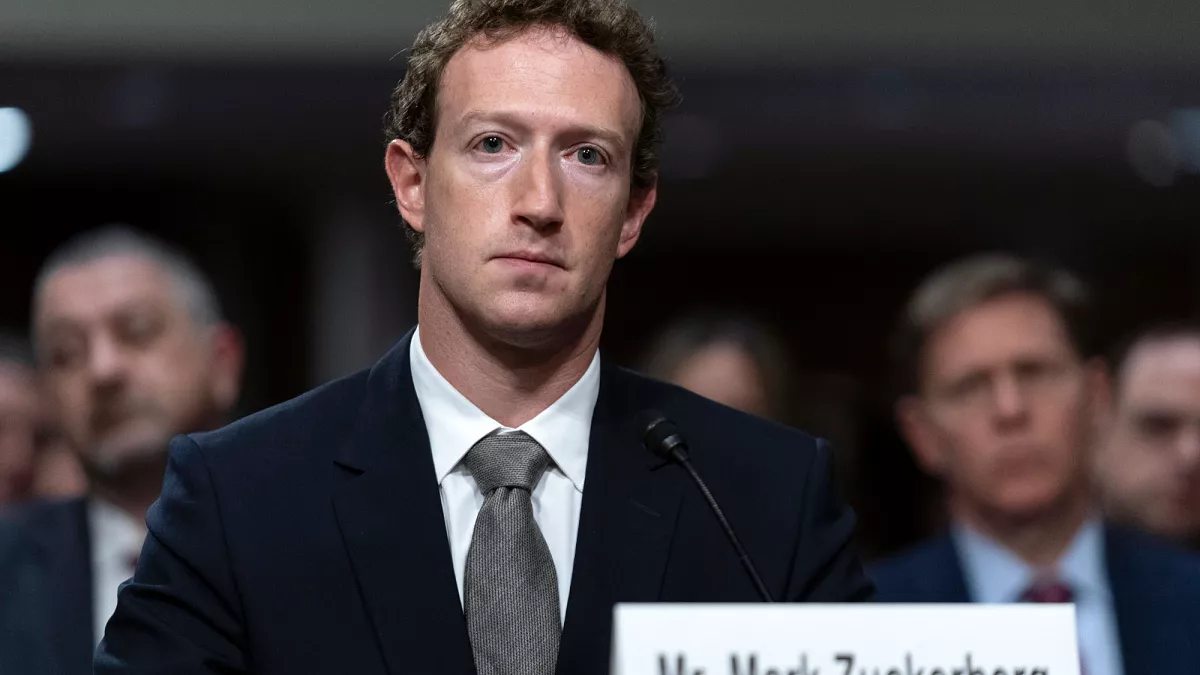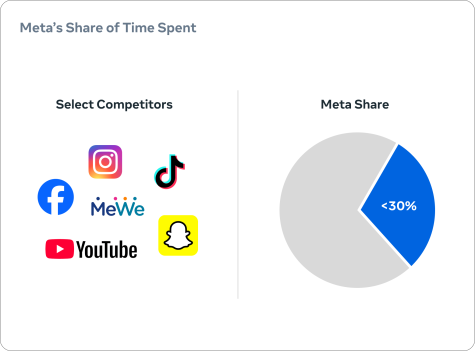
Emmerson Cattich | Opinion Editor
April 17, 2025
Mark Zuckerberg, CEO of Meta, is once again facing trial in an antitrust case. This time, he’s being accused of acquiring Instagram and WhatsApp when they were still startups, then folding them into Meta to monopolize the social media industry. The Federal Trade Commission (FTC) hopes to dismantle what it views as a digital monopoly—but their case appears shaky.
One major flaw in the FTC’s argument is its narrow definition of Meta’s competition. The agency claims that Meta only competes with Snapchat and MeWe. But ask any SCHS student—including junior Dylan Nelson—and they’ll tell you Instagram and Facebook are in direct competition with TikTok, YouTube, and even X. The trial may end up showing that Meta’s dominance isn’t as clear-cut as the FTC suggests.

Even the FTC’s data backs that up. The FTC’s own market definition shows most smartphone users spend more time on TikTok and YouTube than on Instagram or Facebook, which account for only 30% of total social media time. SCHS student Izzy Daniel reflects that trend, saying she spends “more time on TikTok than Instagram Reels” and doesn’t “even have a Facebook account.” How can a company be a monopoly if it doesn’t even dominate the market?
Another issue: the FTC already approved Meta’s acquisitions of Instagram and WhatsApp back in 2013, when both were small startups. The FTC now argues that Meta bought out potential rivals instead of competing with them. But proving that those startups would have become successful without Meta’s support is nearly impossible. Reversing a decade-old merger would be an uphill climb.
So why pursue the case? For the FTC, this trial is less about winning and more about sending a message. Regulators want to make it clear that Big Tech—no matter how powerful—won’t be given a free pass. Despite Zuckerberg’s efforts to build relationships with figures like President Trump, including attending his inauguration and meeting privately in the Oval Office, the FTC is determined to make a statement.
In the end, Meta’s $1.4 trillion empire probably won’t be broken up. But this trial serves as a warning: Zuckerberg may have friends in high places, but regulators are still watching.

Leave a Reply